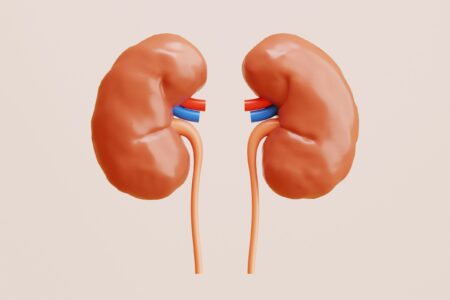If you’re looking for a cruciferous vegetable that is a bit healthier, then Brussels sprouts might be the right option for you. These sprouts are packed with vitamins C, K and other nutrients that can help improve your overall health. Brussels sprouts are also low in calories and cholesterol so they can be a healthy addition to your diet. But are Brussels sprouts good for you? But don’t worry, I’m here to clear up any misconceptions about this popular veggie. In this article, I’ll discuss the basics of Brussels sprouts and how they fit into the overall diet.
Are Brussels Sprouts Good for You?
One of the most important things you need to know is that Brussels sprouts are good for you. They’re very high in vitamins and minerals like vitamins A, C and potassium. The high levels of vitamin C help maintain a healthy immune system and vitamin K helps keep your joints young and strong. You can also get some iron from the Brussels sprouts, making them a great addition to your diet if you want to treat anemia or iron deficiency.
Brussels sprouts also contain calcium, which reduces the risk of osteoporosis. So, if you’re trying to avoid this disease or want to help your bones stay strong and healthy, you should try them regularly. The compounds in Brussels sprouts help increase your body’s ability to absorb calcium, which is why they’re good for you.
What Compounds Are Present in Brussels Sprouts?
Brussels sprouts have several compounds that cause their distinctive flavor. And yes, they include sulfur-containing compounds that give them their distinct odor. Methyl sulfide and methanethiol contribute to Brussels sprouts’ earthy flavor. Cooking turns glucosinolates into antioxidant isothiocyanates.
In fact, glucosinolates in Brussels sprouts prevent cancer-causing enzymes, making them a favorite of researchers. They also prevent the conversion of nitrates into nitrosamines, carcinogenic compounds.
Do Brussels Sprouts Have Anti-Inflammatory Properties?
Yes. Brussels sprouts are known to have anti-inflammatory properties. They also help reduce the risk of diabetes because of their ability to lower blood sugar levels and improve insulin sensitivity. The antioxidants in Brussels sprouts help clear up the free radicals in your body, reducing inflammation.
The compounds in Brussels sprouts also help protect you from cardiovascular disease. These chemicals reduce inflammation and maintain blood pressure to prevent strokes and heart attacks. So, you can use this antioxidant-rich vegetable in many ways, including it in salads, cooking it, adding it to soups, or simply eating some raw.
Are Brussels sprouts good for Diabetics?
Brussels sprouts have some carbs and sugars in them, but they’re not going to raise your blood sugar level significantly. They contain a compound called indole-3 carbinol, a nutrient that helps keep your blood sugar levels in check. Some people on a low-carb diet have started substituting Brussels sprouts for potatoes. They make a great side dish and taste good as sauteed or roasted. You can also swap them with other root vegetables like carrots, turnips and parsnips.
Brussels sprouts are also high in fiber and vitamin C, both of which are fantastic for people with diabetes. Fiber can help lower blood sugar levels because it can make you feel full after you eat only a small amount of the food. You feel fuller for longer and don’t want to eat as much, so you eat less and maintain a healthier diet. Vitamin C can also decrease blood sugar levels because it boosts insulin efficiency.
Do Brussels sprouts help with weight loss?
Yes. Brussels sprouts are very low in calories and taste good enough to eat in large quantities if needed. It is an ideal food to use in weight loss programs. Brussels sprouts are highly filling. Therefore, people don’t consume as much as they should. They are so healthy and low in calories that you feel like eating something good. You feel satisfied and you are less likely to binge because of its high fiber content.
Eating before you feel hungry is very important, so you don’t end up overeating. Brussels sprouts can help you there. Also, it’s important to drink a lot of water so that your body remains hydrated and fuel for your body is available. If your body doesn’t have enough nutrients, it stores calories as fat more easily.
Final Word
People often think of brussels sprouts as a yucky vegetable, but they are really good for you. They taste nothing like cabbage and have a unique flavor. But you must cook them well so they don’t taste bitter. Make sure that you eat a lot of other good foods and that you exercise regularly so that you can lose belly fat and maintain a healthy weight. You should also eat brussels sprouts regularly as a delicious side dish. Other good vegetables to eat in Brussels sprouts are cauliflower, carrots, turnips and parsnips.
Read More: Apply for med card online with Medical Marijuana Doctors. Get your California card on a mobile device, or submit paper application by mail.







